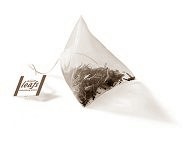|
Definition: "An ergogenic aid is any substance or phenomenon that enhances performance "
|
|
||||||||
04.08.2013 |
|
|
EGCG protects liver and kidneys, and extends life expectancy
Tea, and green tea in particular, contains catechins such as catechin, epigallocatechin [EGC], epicatechin-gallate [ECG] and epigallocatechin-gallate [EGCG]. Researchers suspect that EGCG in particular is the reason why epidemiological and animal studies show that tea consumption extends life expectancy. For more of our posts on the life-extending properties of tea click here.
According to a 2001 study, the average Dutchman consumes 50 mg catechins daily from drinking tea. [Eur J Clin Nutr. 2001 Feb;55(2):76-81.] The Chinese converted this level of consumption to an equivalent dose for rats, and arrived at 5 mg EGCG per kg bodyweight a day. For simplicity's sake they assumed that catechins and EGCG were interchangeable.
When the researchers gave their lab animals 5 mg EGCG per kg/day nothing happened. So they increased the dose by a factor 5, and then they did obtain results. Rats given 25 mg EGCG per kg/day from the age of 2 months lived longer.
EGCG had no effect on the rats' insulin levels or their blood pressure. The EGCG rats weighed slightly less than the control rats. Blood analysis revealed however that the liver and kidneys of the EGCG rats remained healthier longer than those of the control group.
Microscopic analysis of liver and kidney tissues after the rats had died confirmed this too. The Chinese measured the histological activity index for the liver and the tubular injury score for the kidneys. The higher the scores, the worse the condition of the liver and kidneys. The scores for the tissues in the EGCG rats were significantly lower than those of the tissues in the control group.

The Chinese think that EGCG kept the rats' liver and kidneys healthy by inhibiting TNF-alpha and activating SIRT1, thereby extending their lifespan. "Our study suggests that long-term consumption of phytochemicals with antioxidant and anti-inflammatory activities could be beneficial in promoting health and extending lifespan", they write.
If you weigh 80 kg, the human equivalent of the EGCG dose used in the study is about 320 mg per day. Products containing this amount can be found in any drugstore or supplements store.
Source:
More:
|
|




